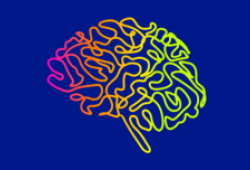Shaping better, more inclusive business intelligence
Lived experiences from across the healthcare business intelligence community offer valuable insights into neurodiversity and challenge assumptions about how research, analytics, and workplaces are designed.
This page, developed in line with the BHBIA’s Diversity, Equity & Inclusion (DE&I) Committee, highlights the importance of inclusive insight generation, supportive organisations, and an environment where diverse needs are understood and respected.
Real voices have real impact and, by listening to and learning from these experiences, we can create more empathetic, inclusive and effective practices in everything from market research design and analytics to workplace culture.

Neurodiversity Experiences with Healthcare & Research
Webinar recorded on Wednesday 30 April 2025
Explore how neurodiverse individuals experience healthcare and how their voices can be better reflected in research. This expert-led session features real-life perspectives and practical advice for designing more inclusive, accessible studies.
The recording is now available exclusively to BHBIA members. Watch the webinar
We've summarised some of the key themes and takeaways from the webinar, which include practical advice to support more inclusive insight generation. Read the summary
The themes explored in the webinar are echoed in the lived experiences shared by members of the BHBIA community. These personal stories offer further insight into the everyday realities of neurodivergence — as caregivers, colleagues, and researchers — and show how greater awareness can lead to meaningful change in healthcare, research practice and organisational culture.
Member spotlight: Heliana’s Story
“Neurodivergence isn't just about the individual – it’s the world they navigate.”
Heliana is a Project Director at Adept, whose eldest son, has been diagnosed with ADHD and ASD. Her story is one that helps us understand that neurodivergence isn’t just about the individual, it’s about the world they navigate and the systems which help or hinder.
What is your experience with neurodiversity?
My eldest son was diagnosed with ADHD and ASD, only recently, but at 18 months it was suggested by a paediatrician overseas that he was on the spectrum. I was in tears almost every day on the school run. It was so intense with meltdowns. Three years ago, we started protocols with functional medicine, including managing nutrition, and it’s made a real difference. It is important to emphasise that we are not looking for a cure, but with these strategies we are able to help him with the main struggles.
I’ve learned that It’s very unpredictable; what works one day doesn’t work the next. It takes constant communication to figure out how my son is reacting to things, and I’m always anticipating and making back up plans. When we go to parties or events, we arrive before everyone else so it’s quiet and the crowd builds around him, rather than arriving into a crowd. If we go to the park but it’s not open, we have a plan to go to another place.
What might others not know about your role as a caregiver?
The system makes parents fight for everything, for example we only just received an EHCP. We started to request diagnosis since he was in reception and now, he is in Year 3. My kid has gone through a substantial amount of unsupported mainstream schooling. You end up doing a lot of your own research. You learn from experience of course, and from other people’s journeys, and you learn from community groups and coffee mornings, but that is not always possible when you work full time.
How can we be more inclusive when we design research?
We need to remember that not everyone processes information in the same way. In your mind it might be simple, going from A to B. In certain brains, things don’t work like that. It might need to be graphic, it might be visual, or it might be with a story. Maybe some studies could get better results, more accurate results, if we did consider that. Maybe if you have someone on the spectrum checking the questionnaire, checking the key questions… Asking, ‘does this make sense to you?’ or ‘What is the meaning of this?’
It is also about helping them feel in control. Kids in general like to feel like they are in control, especially kids on the spectrum. They like to be able to make choices.
Finally, what would you want others to know about your experience?
It definitely makes you more tolerant in general. It’s very easy to judge when someone doesn’t do the thing you don’t expect. It makes us more tolerant; it makes us more human. You don’t want to bring your personal life to work, but it is important that people at work understand what you are going through, because you may have periods where you are less productive.
Member spotlight: Living and working as a caregiver
“People often assume I have a neurotypical child. I’ve learned to be open early on."
Our next member story comes from a Managing Partner at a global healthcare insight agency and a caregiver for her young daughter, diagnosed with severe autism. It highlights the importance of a supportive community and inclusive workspace, alongside the day-to-day realities of balancing caregiving with professional responsibilities.
Navigating neurodiversity as a caregiver
Her daughter was diagnosed with severe autism at a young age. She shared, “At the start of the journey it’s really hard to deal with,” but whilst it was initially challenging to understand her daughter’s needs, the diagnosis provided clarity and direction.
She was fortunate to find a network of local caregivers in her area – people who understood the realities of caregiving. This network gave her a space to share her experiences, and also to learn from others who were in different situations.
From her perspective, when people think of autistic individuals, they often imagine those who are more outspoken or visible on social media. Sometimes these individuals describe autism as a ‘superpower’ and not challenging when in fact, it can be. Many people with severe autism express themselves differently. It's important to remember that autism is a spectrum and there are individuals with a range of abilities and challenges.
Workplace support that makes a difference
In the workplace, she is supported by being able to work flexible hours, which sometimes means leaving work earlier or finding alternative solutions for work trips. This flexibility is important, as it allows her to maintain a routine for her daughter, which provides stability.
When asked what workplaces could do differently to be more supportive, she answered, “By not making assumptions.” People often assume she has a neurotypical child, which can lead to misunderstandings. To avoid this, she mentions her daughter's condition early in conversations to build understanding.
How we can make people more comfortable in the workplace.
Encouraging openness about being neurodivergent or being a carer can foster psychological safety. By being transparent, she was able to help a colleague who was starting a similar journey as a carer, offering support and guidance.
Even in an environment where there may not be many neurodiverse colleagues or carers for neurodiverse individuals, raising awareness and creating a supportive atmosphere can make a significant difference in creating a positive and inclusive workplace
Member spotlight: Rachel's story
“Autism is a spectrum — Think of it like a Rubik’s Cube. There are different sides and different facets.”
Rachel, a market researcher, shared her experience and strategies for supporting her autistic son, along with learnings from working with a variety of people in the industry. She emphasises the importance of understanding each autistic person's unique strengths and challenges, as well as common misconceptions about autism and the spectrum's diversity.
As a career, how has your knowledge of autism evolved over the years?
As a mum, you become an expert through osmosis — you learn as you go along. I’ve read lots of books, done research, spoken to many experts in the educational environment, and attended conferences.
I've also helped educate others, particularly his teaching assistants, and I support other parents of autistic children — helping them navigate the system or better understand what’s going on with their child.
So yes, my understanding of autism has increased massively over the years.
What do you think are some common misconceptions about autism?
The typical misconceptions are that an autistic person is a savant, exceptionally good with numbers, prefers to be alone, and struggles to communicate. I would say my son is not any of those.
What I try to explain to people is that autism is a spectrum — it’s like a rainbow. It’s not a gradient; there are a variety of colours and traits. Each person is an individual, so every autistic person has their own specific set of traits.
If we think of it like a Rubik’s Cube, there are different sides and different facets — that’s a better way to picture it.
What do you think we can do as a society to alleviate these misconceptions? And what can we do in the workplace?
Awareness has increased massively since I started this journey nearly 20 years ago, thanks to organisations like the National Autistic Society and society’s growing openness around inclusivity and neurodiversity.
We’re also seeing more autistic people openly saying, “I’m autistic,” both on TV and in mainstream media. That visibility really helps. It spreads awareness and encourages others to share their own stories, without fear.
It can be hard to say, “I’m autistic and I struggle with…” but it’s great when people feel they can share that.
In market research do you find participants often speak openly about having autism or neurodivergence?
I wish more people would say they’re autistic. In some research I did a few weeks ago, a participant told me she was autistic, and because of that, I was able to make accommodations and adjustments.
That was actually the first time in my 20 years of doing research that someone had told me this during an interview.
When conducting interviews or presenting market research findings, what do you do to ensure it’s accessible and inclusive?
Firstly, our premise in market research is to do no harm, and we already apply that principle when interviewing people who for instance have chronic or life-limiting conditions in healthcare research. The same should apply for autistic individuals — it’s our responsibility to make the necessary adjustments so they are on an equal playing field. This could mean being signposting what’s coming up, giving more information on the task at hand, or asking questions in a simpler way.
It also means ensuring documents are neurodivergent-friendly. Some companies are more aware of this and have made their proposals and presentations more accessible, generally. They consider background colour, text type, font, and overall readability. It’s about thinking through those small but important details.
What are steps we need to take within the pharmaceutical industry to be more inclusive?
Inform yourself by understanding what neurodivergence is. It’s our responsibility as neurotypicals to provide accommodations and adjustments. Sometimes people who are neurodivergent come across to us as being rude or difficult or unsociable and that’s often because we don’t understand them. It’s important to understand neurodivergence and to be accommodating. Practically, this could mean after a very intense meeting, allowing an autistic colleague 15 minutes in a quiet space to ‘reset their social batteries’ or decompress from overload, or more simply, not jumping to assumptions because someone does not act or say things in the way we ‘expect’.
Resources to support your learning
ADHDmazing Artwork – see the world through a neurodivergent lens
MRS Guide: Conducting research with neurodiverse individuals
National
autistic society: https://www.autism.org.uk
